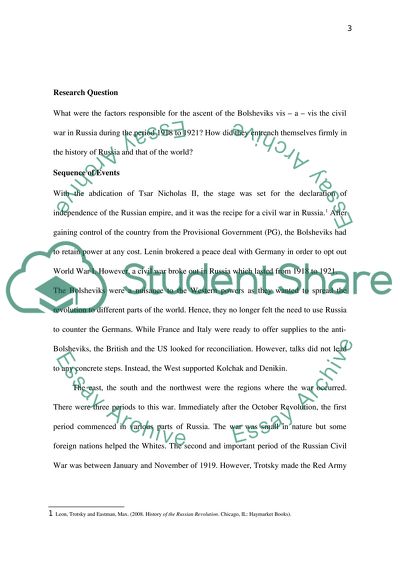Cite this document
(Russian Revolution Civil War Research Proposal Example | Topics and Well Written Essays - 2000 words, n.d.)
Russian Revolution Civil War Research Proposal Example | Topics and Well Written Essays - 2000 words. https://studentshare.org/history/1868613-russian-revolution-historypolitical-science-civil-war
Russian Revolution Civil War Research Proposal Example | Topics and Well Written Essays - 2000 words. https://studentshare.org/history/1868613-russian-revolution-historypolitical-science-civil-war
(Russian Revolution Civil War Research Proposal Example | Topics and Well Written Essays - 2000 Words)
Russian Revolution Civil War Research Proposal Example | Topics and Well Written Essays - 2000 Words. https://studentshare.org/history/1868613-russian-revolution-historypolitical-science-civil-war.
Russian Revolution Civil War Research Proposal Example | Topics and Well Written Essays - 2000 Words. https://studentshare.org/history/1868613-russian-revolution-historypolitical-science-civil-war.
“Russian Revolution Civil War Research Proposal Example | Topics and Well Written Essays - 2000 Words”. https://studentshare.org/history/1868613-russian-revolution-historypolitical-science-civil-war.


